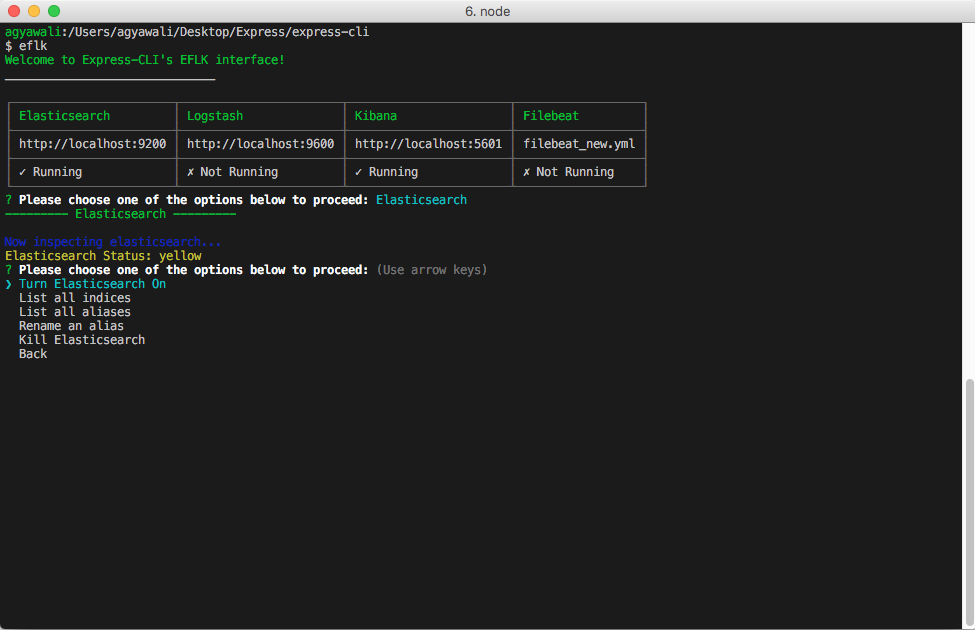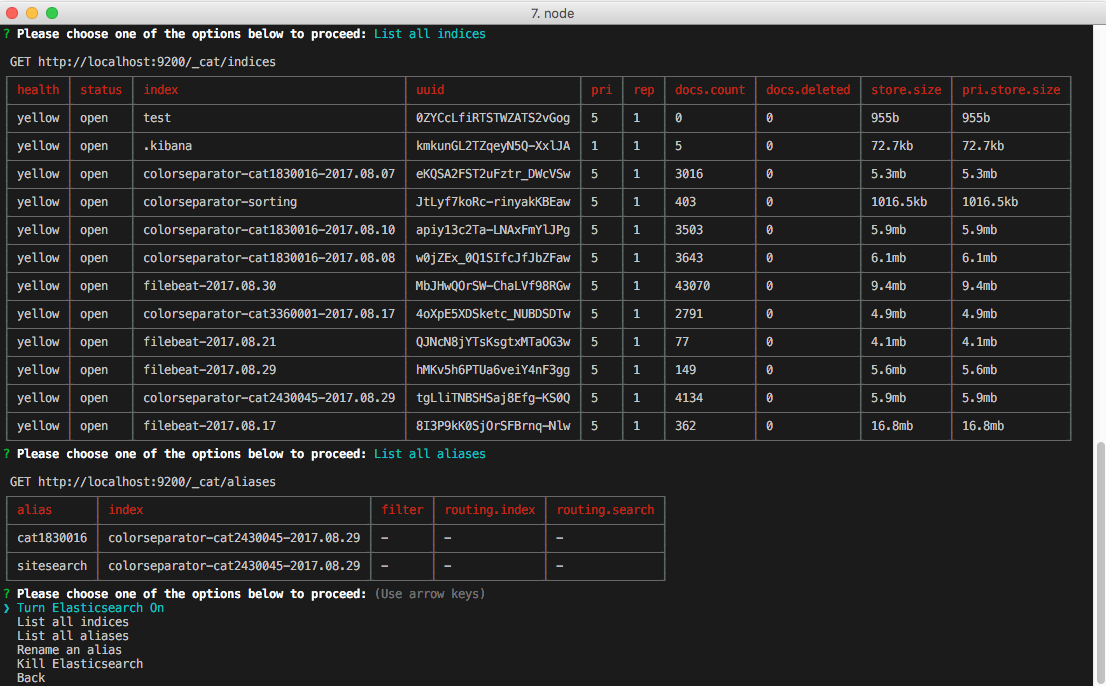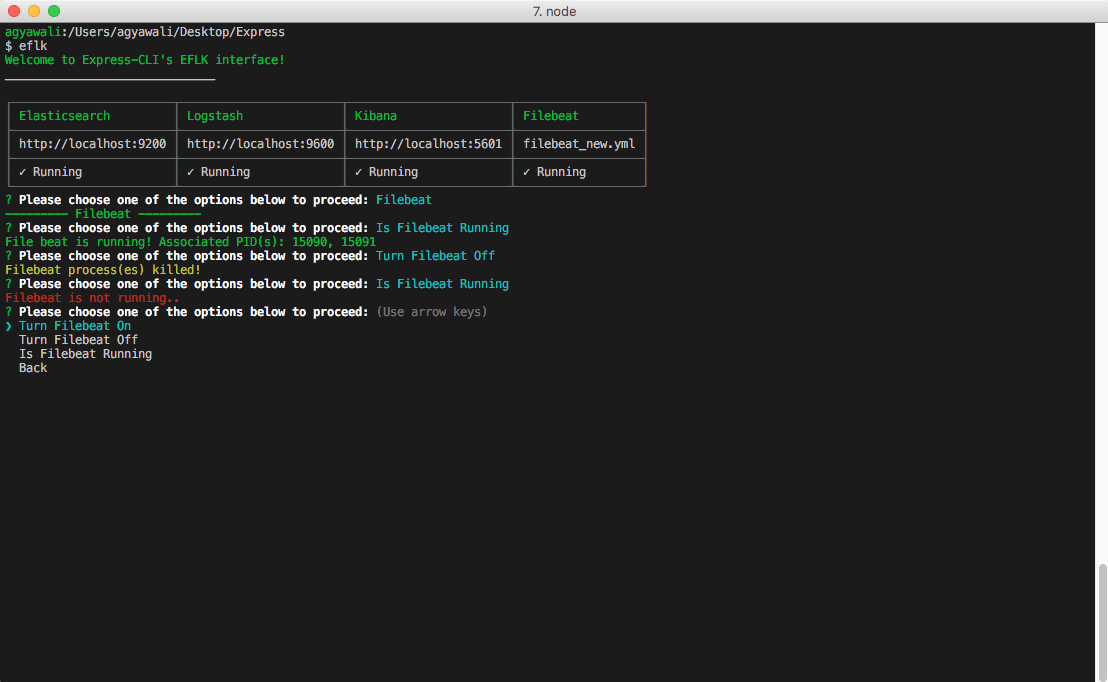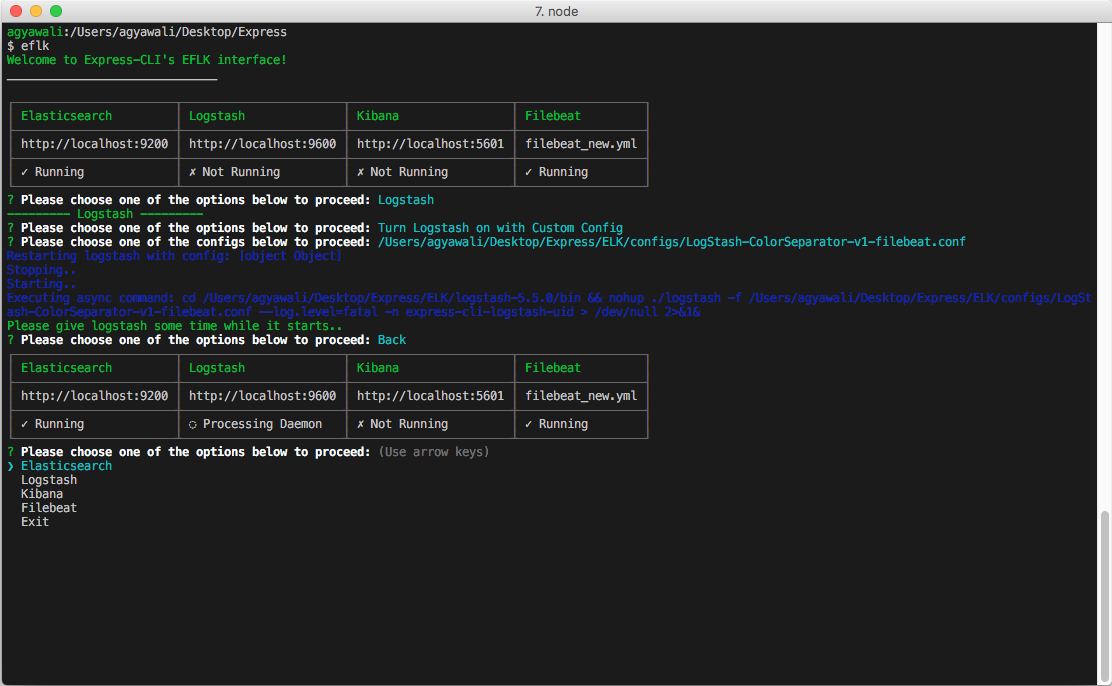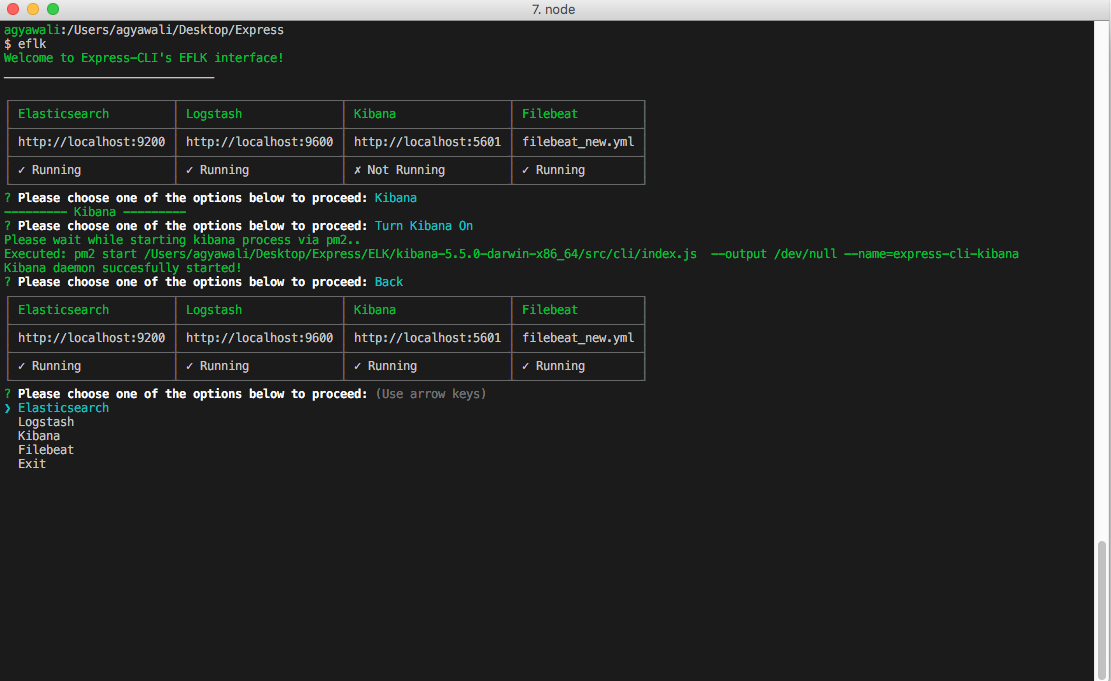eflk is an interactive, terminal based tool, that speeds up your day-to-day workflow when working with the stack developed by elastic.co, which includes: Elasticsearch, Logstash, Filebeat & Kibana.
eflk enables you to run the four products from elastic.co as daemon. It also lets you inspect those daemons, restart if anything goes wrong & easily switch between multiple configs. eflk does not support x-pack or any other authentication layers. So it is recommended to use eflk only on localhost or dev environments to improvise your work flow.
- Easy configuration of the whole stack.
- Provides dashboard to inspect all the deamons.
- Easy logstash configuration switching.
- Lightweight, accessible globally.
Modify config.json to configure the module. Instructions to locate config file provided with installation instructions below.
Configuration expects three main parameters for the four stacks:
elk_executable_path: Note that the executable path for Elasticsearch, Logstash & Kibana needs to be absolute and must point to the bin folder within the main repo/downloaded product provided by elastic.co. Since filebeat's executable lies on the root of repo, you can simply point to the root of product.
elk_public_address: The Addresses' where the various products will be available at. Default values from elastic.co provided on sample-config.json.
elk_configs: Only logstash & filebeat are configuration is possible at the moment. logstash takes in an array containing absolute path to multiple *.conf files (first config on array will be regarded as default) while filebeat supports only a string of single absolute path to *.yml file.
npm install -g eflk to install globally. You should now be able to call eflk from anywhere by simply executing eflk.
Path's to eflk stack (first time run) can be configured using eflk configure, or choosing configure option from cli.
Module abstracted out from express-cli, part of express.com.
